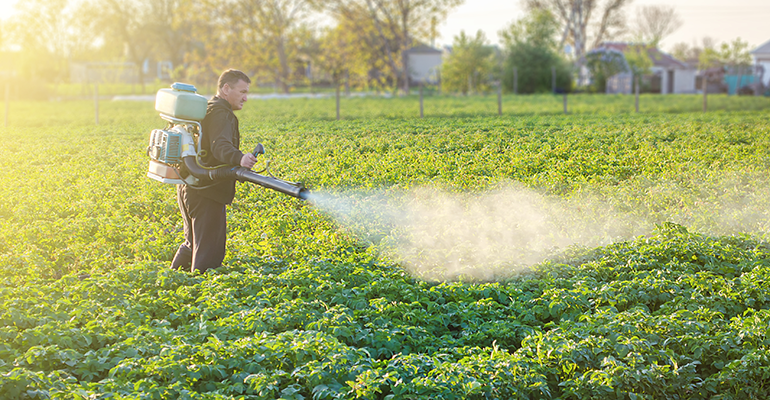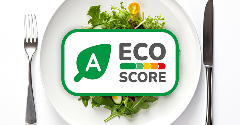News
Pesticide residues in conventional baby food: A boost for organic?
29 Feb 2024Nearly four in 10 (38%) of conventional US baby food products contain pesticide residues, according to research that also found that the organic samples were pesticide-free. Could this be an opportunity for organic or ‘pesticide-free’ produce?
Non-profit organisation, the Environmental Working Group (EWG) tested 73 products on the US market – 58 conventional baby foods and 15 organic ones – from three major brands, Beech-Nut, Gerber, and Parent’s Choice. It found that 22 of the 58 conventional baby foods contained at least one pesticide residue but no pesticides were found in the certified organic products.

The findings, published at the end of last year, show a marked improvement in the past 30 years. In 1995, EWG published a study that found pesticide residues in over half (53%) of the baby food samples.
Despite the progress, the 2023 analysis still detected nine pesticides, including residues of captan, and a derivative, tetrahydrophthalimide (found in 11 products), acetamiprid (5 products), fludioxonil (5 products), pyrimethanil (4 products), imidacloprid (3 products), methoxyfenozide (2 products), chlorantraniliprole (1 product) dodine (1 product), and propiconazole (1 product). These chemicals have been associated with many adverse health effects, such as nervous system damage, changes to immune cells, hormone disruption, and cancer.
A boost for organic?
Given the negative health impact of pesticides, particularly for babies, infants, and children, could the higher probability of finding residues on conventional produce result in higher interest in organic?
This is already on the radar of many consumers, according to market research company Mintel. It conducted a survey in 2022 and found that 64% of US consumers avoid pesticides in food and drinks.
The EWG produces two shopper guides – the Dirty Dozen and Clean Fifteen – to help inform US consumer purchasing decisions.
The Clean Fifteen list features produce that tend to be free from pesticide residues such as sweet corn, sweet peas, mangoes and carrots, and the non-profit says it is acceptable to buy conventional versions of these.
The Dirty Dozen list, on the other hand, contains common fruit and vegetables that are more likely to contain pesticide residues, and the EWG recommends buying organic versions if people’s budget allows it and if organic alternatives are available. This list commonly features strawberries, peaches, cherries, blueberries, apples, and pears.
In Europe, meanwhile, Statista found that 84% of German organic shoppers said their main motivation was to reduce pesticide residues while 90% said they preferred to buy “natural, untreated” groceries.
The EU-based non-profit association, Pesticide Action Network (PAN), also advises people to buy organic produce if possible.
“… there is one area where organic outperforms non-organic [for health benefits] and that is in regard to pesticide residues present in the food we consume,” it says.
“In the UK, pesticide residues are found in approximately 60% of the non-organic fruit and vegetables that are available to consumers. Many of these contain the residues of more than one pesticide so in effect they offer a cocktail of residues with each bite. On the other hand, there is almost never a detectable pesticide residue present on organic produce.”
The appeal of a ‘free from pesticide residues’ label
Organic products tend to be more expensive than conventional ones due to lower yields, segregation costs, and more expensive inputs, among other reasons, and due to this higher price tag, many consumers cannot afford to buy organic. A third option that may appeal to consumers concerned about pesticide residues on non-organic produce and may be cheaper than organic is food certified as free from pesticide residues.
In 2018, a group of French farmers operating under the Nouveaux Champs collective launched a ‘zero pesticide residue’ label. Its creators said the label was not intended to compete with organic farming but rather to provide consumers with more alternatives. According to Alcimed consultancy group, 52 companies and more than 3000 producers had adopted the label just one year after its launch.
Nevertheless, Alcimed analysts note some drawbacks of the label compared to organic, particularly that it does authorise the use of pesticides during cultivation and therefore does not address environmental issues, such as soil pollution.
Nouveaux Champs is not the only group exploring the concept. With the support of the EU, Bioberry, a Polish berry producer, launched a project to find ways of improving the traceability and visibility of pesticide residue-free products on the market. It created a labelling system to guarantee agricultural products without pesticide residues while also researching how to reduce the number of pesticide treatments and replace them with natural preparations.
Certification company Bioagricert, owned by Foodchain ID, also offers a zero residue and controlled residue standard for fresh fruit, vegetables, and other produce. It says the label is a useful tool to add value to agri-food products that limit the use of pesticides during cultivation and that are particularly attentive to the environmental impact and health of consumers. Bioagricert defines produce as having zero residue when the traces are less than or equal to 0.01 mg/kg (10 parts per billion).
Authorised pesticides
In the US, organic food may not be produced using synthetic fertilisers or pesticides but pesticides derived from natural sources, such as biologicals, can be used. In the EU, there are 490 substances approved for use as pesticides according to an approval database and, of these, only 28 are approved for use in organic agriculture. According to PAN, the majority of these 28 are of low toxicological concern to consumers or the environment.
Related news

UK Government overhauls childhood obesity strategy
21 Nov 2025
The UK Government has announced a new package of measures designed to reverse the nation’s childhood obesity epidemic following the release of statistics revealing the scale of the crisis.
Read more
How younger consumers are redefining ingredient choices and rejecting brand loyalty
18 Nov 2025
Gen Z and millennial consumers’ preferences for transparency, functionality, and purpose are “redefining the very nature of consumption itself”, says SPINS.
Read more
New UPF standard hoped to offer consumers ‘coherence and clarity’
10 Nov 2025
Ingredients companies are being urged to enter “a new era of partnership and innovation” following the launch of the industry’s first non-UPF verification scheme.
Read more
Ingredient quantities mislabelled on popular protein bars, independent tests show
5 Nov 2025
Some popular protein bars contain more fat, carbs, and/or sugars than claimed on their labels, independent nutrition testing reveals.
Read more
Does promoting protein content push up plant-based sales?
27 Oct 2025
Promoting the protein content of meat-free products is a more effective sales strategy than adding carbon labels, a study of UK bakery chain Greggs suggests.
Read more
Supplement shoppers seek storytelling and science-backed suppliers
17 Oct 2025
Supplement consumers want specific health benefits that focus on prevention and personalisation, according to data from HealthFocus International.
Read more
Food fraud risks rise as brands fight economic and environmental headwinds
10 Oct 2025
Climate change, geopolitics, regulations, and demand for sustainable products are pushing up food fraud and adulteration risks, warns a world-leading food fraud expert.
Read more
The growing appeal of nutrient-dense food claims
2 Oct 2025
Nutrient-dense claims are rising as consumers reject the “empty calories” of UPFs in favour of products that provide meaningful nutrition with every calorie, Mintel data shows.
Read more
What does MAHA mean for the US nutraceutical industry?
30 Sep 2025
Industry associations have expressed mixed reactions to new policy directions on health and nutrition under the Make America Health Again (MAHA) banner.
Read more
Eco-Score labels improve consumer identification of sustainable foods
22 Sep 2025
The presence of a front-of-pack Eco-Score label improves consumers' accuracy in identifying sustainable food products from 52% to 72%, a study suggests.
Read more